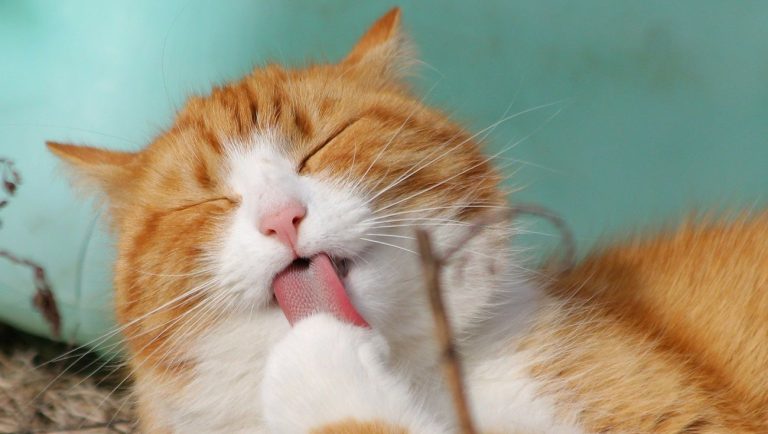Decoding the Cat’s Lick: Why Your Feline Friend is Grooming You
Your cat’s rough tongue giving you a loving lick? It’s a common feline behavior, but understanding the why behind it is key to strengthening your bond and ensuring your cat’s well-being. While it might feel a bit abrasive, this isn’t just random affection; it often speaks volumes about your cat’s emotional state and your relationship. This comprehensive guide delves into the reasons behind this quirky behavior, providing insight and solutions to address any concerns.
The Social Glue: Bonding and Affection Through Grooming
One of the primary reasons your cat licks you is to reinforce social bonds and express affection. Observe multi-cat households: cats frequently groom each other as a way to solidify their social hierarchy and reduce conflict within the group. Since you’re a part of your cat’s social group (its family!), this grooming behavior extends naturally to you.
A healthy cat licking you is a positive sign; it indicates they feel comfortable, safe, and connected to you. They like you, plain and simple, and licking is their way of showing it. This behavior is analogous to human affection – a gentle touch, a hug, or a comforting pat on the back. For cats, it’s a lick.
Beyond the emotional connection, your cat might also find your scent appealing. Certain components of human sweat can be alluring to some felines. Additionally, the scent of lotions, creams, or even medications on your skin can pique their interest. However, be aware that if you’re using topical hormone treatments, this can actually be a problem. Hormonal changes in cats (and dogs) can be triggered by certain medications. If your cat frequently licks you after applying topical medications, consult your veterinarian to ensure there are no associated risks.
Anxiety’s Silent Signal: When Licking Becomes a Coping Mechanism
While affection is often the primary driver, excessive licking can also be a sign of underlying anxiety or fear. For cats, licking can be a self-soothing behavior, much like humans might bite their nails when stressed. This is particularly prevalent in cats who were separated from their mothers too early, lacking the crucial early socialization that teaches healthy coping mechanisms.
If your cat is excessively licking you and exhibiting other signs of fear or anxiety (withdrawal, hiding, aggression), consult a certified feline behaviorist immediately. In these situations, the licking is a symptom, not the problem. Addressing the underlying anxiety is crucial for your cat’s overall well-being.
Managing Excessive Licking: Finding a Balance
Many humans find their cat’s enthusiastic licking uncomfortable due to the texture of their tongue. The reason for this roughness is biological: a cat’s tongue acts as a highly effective grooming brush. Tiny, backward-facing barbs called papillae made of keratin efficiently remove loose hair, dirt, and fleas. However, even the most affectionate cat’s excessive grooming can become bothersome.
If your cat’s licking stems from affection rather than anxiety, you can subtly redirect the behavior through positive reinforcement:
Grooming Session: Offer a thorough brushing and gentle massage. Most cats enjoy this, making simultaneous licking and pampering difficult.
Playtime Diversion: Keep engaging toys readily available, especially in areas where you spend time. When licking begins, redirect your cat’s attention to play. “Fishing rod” style wand toys are particularly effective for encouraging chase and pounce behaviors.
Enrichment Activities: Provide ample opportunities for mental and physical stimulation, even when you’re not actively interacting. Consider clicker training to teach simple tricks and strengthen your bond.
By understanding the nuances of your cat’s licking behavior, you can respond appropriately, reinforcing positive interactions and addressing any underlying anxieties. Remember, open communication with your veterinarian or a feline behaviorist can provide valuable insights and guidance, ensuring your feline companion remains happy, healthy, and securely bonded to you.
Further Reading:
- Understanding Feline Body Language
- Creating a Cat-Friendly Environment
- Signs of Stress and Anxiety in Cats
Remember, every cat is unique. Pay close attention to your cat’s overall behavior and consult professionals when needed to ensure their happiness and well-being.

